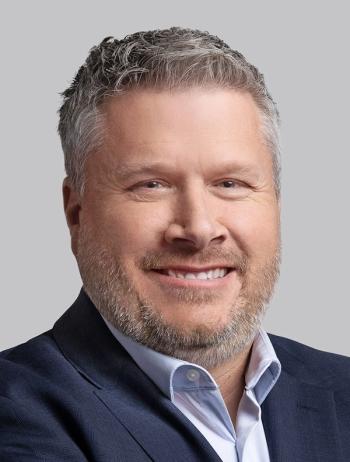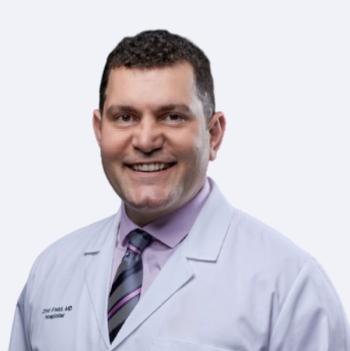
Physicians face punishment for speaking out about non-physician care
The last thing Steven Maron, MD, expected when he was called into his administrator's office was to be fired.
Editor's Note:
Editor’s Note: The author spoke with all physicians involved in this blog. All four physicians reviewed the text and approved the details.
The last thing Steven Maron, MD, expected when he was called into his administrator’s office was to be fired. The Arizona pediatrician said he had never faced any disciplinary actions throughout his 10 ½ years with the organization, and although he had written an opinion piece about nurse practitioners (NPs), he had expressed nothing but admiration, calling them “well-trained, dedicated, popular with patients, and intelligent.”
Which is why the veteran physician of 31 years was stunned when he was abruptly terminated from a Federally Qualified Health Center (FQHC) just days after the article was published in the Green Valley News.
Maron told me he was specifically told he was being terminated because “my article stood in opposition to the principals of the organization, specifically the principle of mutual respect.” He added that his official termination letter stated, “the company exercises its right to the 90-day out clause…”
Maron wrote the op-ed in response to a pro-nurse practitioner
Advertisement
While he referred to nurse practitioners as “a great asset” and even asserted that some could “teach some of us physicians a thing or two about bedside manner,” Maron had the audacity to make the following statement: “I am quite concerned about the implications that NPs completely replace physicians. It was never the intent when NP programs were begun to replace physicians, but to function as supervised physician ‘extenders.’” Uh oh. Apparently, those are fighting words. Or more accurately, firing words.
Unfortunately, the biggest losers in this situation are the patients of Maron’s former employer-patients who utilize FQHCs are some of the neediest and most underserved in the country - who have now lost a dedicated and experienced pediatrician.
Other physicians have reported job loss for speaking about patient safety issues and non-physician provider care.
Stephanie Freeman, MD, a critical care hospital specialist, said she believes she lost her locum tenens contract after speaking out about her concerns over supervising unqualified nurse practitioners. “These NPs were providing overnight intensive care coverage, and yet they had absolutely no ICU experience. One had only worked for a hospitalist group, and another had only worked at a cardiology office,” she said.
Part of Freeman’s responsibility was to provide physician supervision for the NPs, and because of her concerns for patient safety, she insisted that they call her to discuss every patient admission. When this did not happen in one patient case, she confronted the NP responsible. “You documented in the patient’s record that you discussed the case with me, but you did not. You can’t do that,” she relayed to me. One month later, Freeman’s contract was cancelled. “They told me it was because I didn’t work well with midlevels,”she said.
Natalie Newman MD, FACEP, a board-certified emergency medicine physician, has a similar story. She told me she believes she was blackballed by a former employer staffing the emergency department where she worked after enforcing hospital staff bylaws for physician assistants (PA).
“The hospital had clear policies on PA supervision for patient safety reasons. As the supervising physician, I held a PA accountable when she attempted to deviate from those bylaws. She complained about me, and I was abruptly removed from the schedule,” said Newman.
In addition, Newman found herself unable to work in another state when the hospital ER was taken over by that same staffing organization. “I was completely credentialed. My recruiter notified me at the last minute that the [organization] had advised him that my services were no longer desired. That’s when I knew I had been blacklisted by that company for speaking out,” she said.
While other physicians have reported persecution for speaking out about midlevel care, most are hesitant to share their name or identity due to concerns over losing their job. Marleen Smith, MD, who is using an alias while her legal case is pending, reports that she was bullied and forced to resign from a hospitalist position due to a conversation she had with a fellow physician about her concerns over patient safety.
“As a new hospitalist, I took over a panel of patients from a team of nurse practitioners who were acting independently as hospitalists in a state which legally required physician supervision. I found that the nurses simply did not have the training to provide for the level of medical care that these patients required. There were multiple medical inadequacies and patient safety was compromised,” Smith told me.
Smith reported her concerns to the chief medical officer and says afterwards she was ostracized by fellow physicians, threatened with legal action for defamation by the nurse practitioners, and bullied by the hospital into continuing to collaborate with the same nurse practitioners or face punitive financial repercussions. Smith did hire an attorney and currently has a case pending against the hospital. However, Smith remains traumatized by the experience. “I feel as if I have post-traumatic stress disorder over it,” she said. “It still really hurts that I was punished for trying to do the right thing.”
In discussing these issues with colleagues, I have heard physicians report being coerced into “collaborative” relationships with NPs by their administrators as part of their job responsibilities and being threatened with job termination if they don’t comply. These physicians aren’t yet prepared to speak out publicly due to concerns over the legal actions by their employer.
Physicians must continue to stand up for patient safety and the highest standard of medical care for all. Unfortunately, watching our colleagues face job loss, social isolation, and public exposure for speaking out against the trend of allowing lesser quality care in exchange for a higher profit margin will make that a difficult job.
NOTE: The views expressed in these blogs are those of their respective contributors and do not represent the views of Medical Economics or UBM Medica.
Newsletter
Stay informed and empowered with Medical Economics enewsletter, delivering expert insights, financial strategies, practice management tips and technology trends — tailored for today’s physicians.






